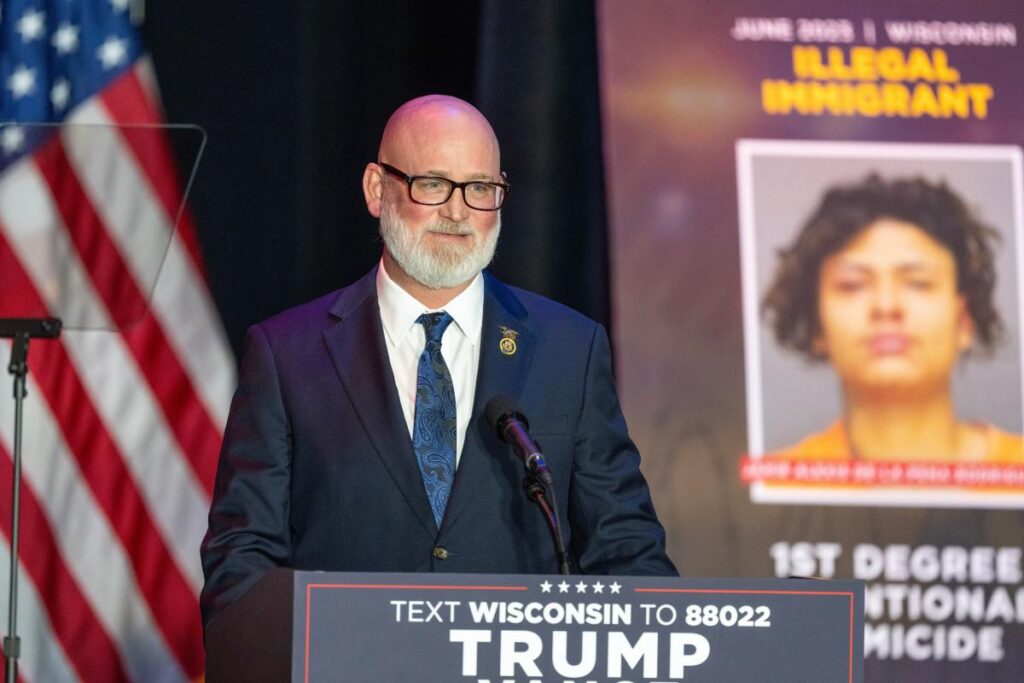In a closely contested election, Freshman Republican U.S. Representative Derrick Van Orden has successfully retained his seat in Wisconsin’s 3rd Congressional District, edging out Democrat Rebecca Cooke by just under three points. With around 99% of the votes counted, CNN confirmed Van Orden’s victory, marking it as one of the state’s most crucial and tightly watched congressional races. The Democratic Party had targeted this swing district to flip it in their favor as they sought to regain control of the House, making the election a focal point of national attention.
As a former Navy SEAL, Van Orden campaigned on key issues that resonated strongly with constituents, including the management of the southern border crisis, reducing the impacts of fentanyl on communities, and addressing the rising cost of living. He emphasized the need for a collaborative effort to bolster the quality of life in western Wisconsin for future generations. His victory is especially significant given that he flipped this district red for the first time in 26 years during the last election cycle, indicating a trend towards Republican dominance in an area previously won by Democratic figures, including former President Barack Obama in 2012.
Despite the intense national campaign dynamics, Van Orden withstood heavy opposition from Democrats. In this election cycle, outside spending in support of Cooke nearly doubled that of Republicans, exemplifying the Democratic party’s determination to reclaim the seat. Cooke, who was able to generate substantial fundraising and support from established party groups, positioned herself as a moderate Democrat focused on agricultural issues and healthcare accessibility. Her prior attempt to secure the nomination in 2022 was unsuccessful, adding to the stakes of this high-profile battle.
In her campaign, Cooke sought to distance herself from the perceived extremism associated with Van Orden, criticizing his affiliation with Trump and calling attention to his past behaviors, including controversial remarks during congressional sessions. She characterized herself as a candidate willing to confront not only her Democratic peers on critical issues but also the growing influence of large agricultural interests (referred to as “Big Ag”). Her endorsement from the moderate Blue Dog Coalition highlights her centrist approach in an increasingly polarized political climate.
Van Orden responded to criticisms of his temperament by asserting that direct communication and honesty are crucial for effective governance. He acknowledged that his approach may be perceived as brusque but argued that true representation requires an unfiltered expression of thoughts and concerns, especially about pressing issues like the economy. He stated that voters were more focused on these tangible problems than on political theatrics or past controversies, hoping to steer the narrative back to the traditional concerns that influence voter priorities.
The significance of campaign financing and advertisement spending cannot be understated in this election. Democratic groups spent approximately $12.3 million compared to $7.3 million from Republican entities, showcasing a strategic push to sway the electorate. However, Van Orden managed to secure a fundraising advantage overall, raising $6.6 million against Cooke’s $5.3 million as of mid-October. This financial edge, alongside a concerted effort to communicate directly with voters about critical local issues, ultimately contributed to his reelection success, solidifying his place in this battleground district.

